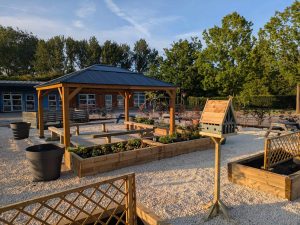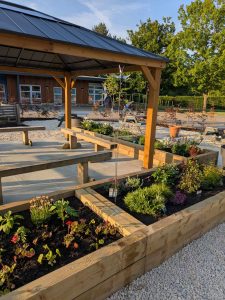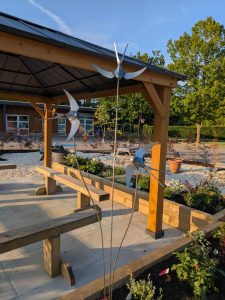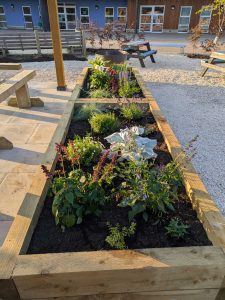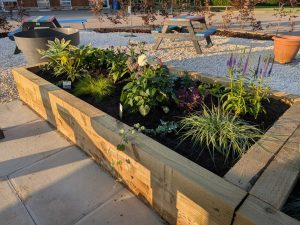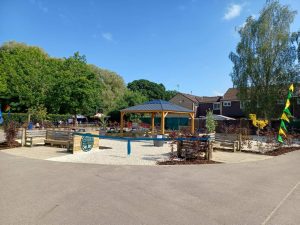Announcements:
For School Tours, please contact the school office on 01293 548014. We have places in most year groups. |

- Home
- Our School
- Admissions
- Early Years: Nursery & Reception
- Curriculum
- Our Curriculum Intent & Implementation
- Vehicles for Learning Explained & Learning Information
- Collective Worship
- Home Learning – Overview
- Curriculum Progression Maps
- Curriculum Subjects
- English
- Foundation Subjects
- Mathematics
- Curriculum by Year Group
- NEW Sex and Relationship Education RSE
- Parents
- News
Waterfield School Community Garden
Project Overview:
The School Community Garden
Objectives of the School Community Garden:
1. Biodiversity Enhancement:
- We aim to create a habitat that supports local wildlife, such as pollinators and beneficial insects, contributing to environmental conservation efforts.
- Planting a diverse range of flowers, shrubs, and trees will help create an ecosystem that attracts birds, bees, butterflies, and other pollinators, increasing the ecological value of our school grounds.
2. Outdoor Learning:
- The garden will become an outdoor classroom, supporting a range of subjects such as science, geography, and environmental studies. Pupils will have hands-on learning opportunities in horticulture, biology, sustainability, and food production.
- It will allow pupils to engage directly in the growing process, from seed to harvest, providing valuable practical experience.
3. Community Engagement:
- The garden will be open to families and the wider community, creating a space where individuals can gather, learn together, and take part in gardening activities.
- Parents and local residents will have the opportunity to engage with the school through volunteering and participating in gardening workshops and events.
4. Health and Well-being:
- Gardening has been shown to have positive effects on mental health, providing a calming, meditative space for both students and the local community.
- Growing fruit and vegetables will promote healthier lifestyles by encouraging the consumption of fresh, homegrown produce.
